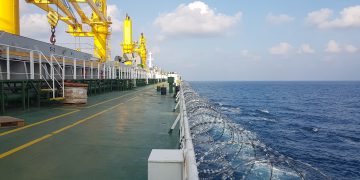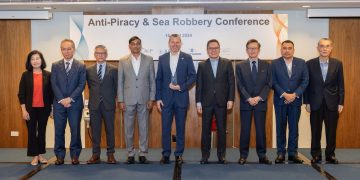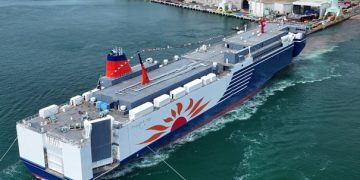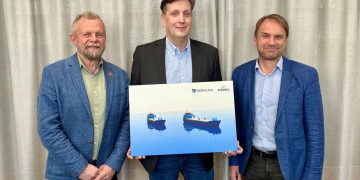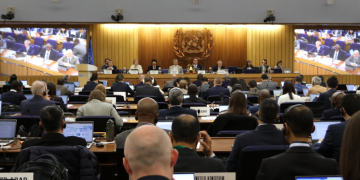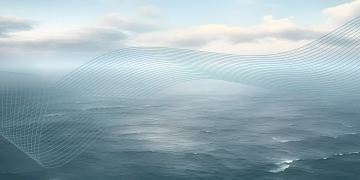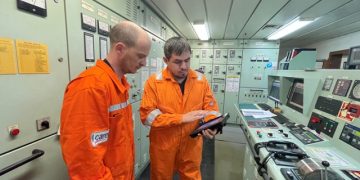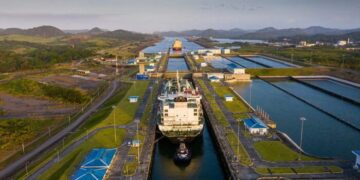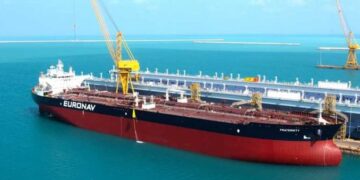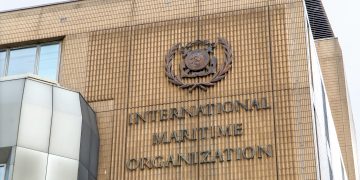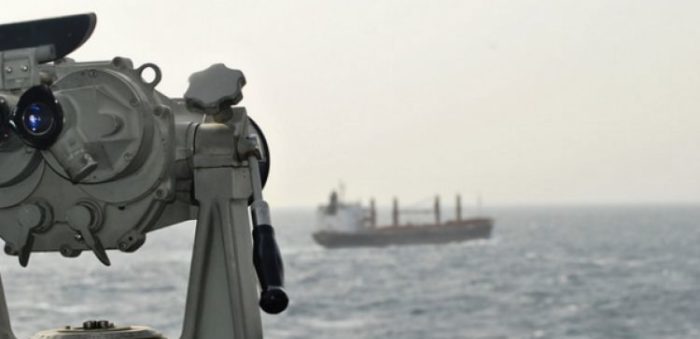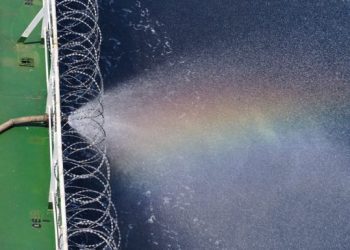The US Central Command announced the opening of Coalition Task Force (CTF) Sentinel’s new command center at Naval Support Activity, Bahrain, on November 7. The new coalition aims to “ensure freedom of navigation and free flow of commerce in international waters throughout the Arabian Gulf, Strait of Hormuz, the Bab el-Mandeb Strait and the Gulf of Oman.”
Increased threats in critical waterways, mine attacks on international shipping, attacks on Saudi oil facilities, the shooting down of a U.S. drone and seized international shipping are prime examples of a tense situation in the Strait of Hormuz.
[smlsubform prepend=”GET THE SAFETY4SEA IN YOUR INBOX!” showname=false emailtxt=”” emailholder=”Enter your email address” showsubmit=true submittxt=”Submit” jsthanks=false thankyou=”Thank you for subscribing to our mailing list”]
For this reason, the US-led naval coalition ‘Operation Sentinel’ was launched, to patrol Middle Eastern waters. The coalition’s goal is to prevent malign activity, promote maritime security and stability, and ensure freedom of navigation and free flow of commerce in international waters throughout the Arabian Gulf, Strait of Hormuz, the Bab el-Mandeb Strait and the Gulf of Oman.
Participants from Australia, Bahrain, Kingdom of Saudi Arabia, United Arab Emirates, United Kingdom and United States showed their commitment to the international rules-based system.
The command center will be a central hub to enable coordination of the information gathered from our navies and partners in industry to create a shared operating picture, and expanding our maritime domain awareness. This will then inform naval operations, directed from this headquarters, that ensure stability in the region through vigilance, surveillance, and assurance under the IMSC
said Vice Adm. Jim Malloy, commander of U.S. Naval Forces Central Command, U.S. 5th Fleet and Combined Maritime Forces.
This initiative came after Iranian authorities seized Stena Impero, a British-flagged, Swedish-owned oil tanker, while sailing through the Strait of Hormuz. The incident spiked the tensions in the area, as the UK condemned this act as ‘hostile’, denying Tehran’s argument that it seized the vessel because it was involved in an accident.
Large naval vessels like frigates and destroyers provide over watch of critical choke points, while smaller naval vessels such as patrol craft and corvettes patrol the key transit lanes between them. In addition, airborne surveillance assets monitor the flow of traffic through the highest risk areas, collectively providing a persistent presence in the area.
In the meantime, on November 7, a UK Chamber of Shipping spokesperson called for a de-escalation of tension in the Strait of Hormuz, adding that UK flagged ships will soon transit the area without close Royal Naval protection.






